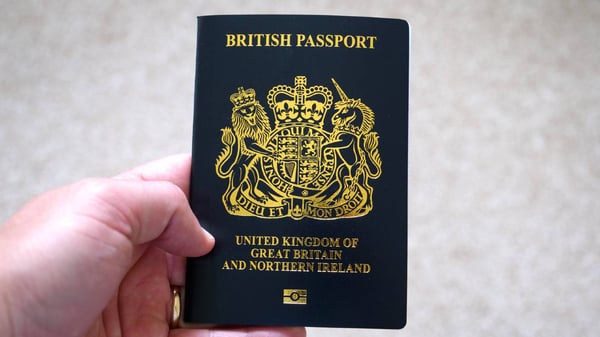Spain is the second most popular destination (after Australia) for the 5.5 million British who live abroad. It's the short-haul holiday break that often becomes a long-term love affair. While Brexit has removed seamless movement between the two countries, moving to Spain is still possible. If you're thinking of starting a new life on the Iberian peninsula, here's how to get your paperwork in order and adjust to a different culture.
Sending money overseas? Save money when you send money with CurrencyFair's low-margin FX rates.
Why move to Spain?
British expats looking for a low cost of living (around €1,500 per month for a single person) but high quality of life will find that Spain checks the boxes. That's before you get to the warm climate, diverse culture, and spectacular gastronomy. The best places to live in Spain for expats span 17 autonomous regions, each with its own character and quirks.
More than 350,000 British citizens are officially registered as expats in Spain. The number actually increased after Brexit, although less from a stampede south and more because a large portion of the estimated one million UK citizens unofficially living in the country were inspired to make their residency official.
Cost of living in Spain
You'll struggle to find any of life's essentials that are more expensive in Spain than in the UK. Utilities, groceries, and dining out are just some of the categories that make Spain around 18% more affordable on average.
The biggest difference, however, is in accommodation. Rent is typically 33% cheaper than in the UK. The national average for a one-bedroom apartment is less than €600 and even the major cosmopolitan cities of Madrid, Barcelona and Valencia usually don't exceed three figures. Compare that to around £1,700 a month in London.
Living and working in Spain as an expat
If the plan is to live in Spain for longer than 90 days, you'll need to apply for a long-term visa (visado nacional) before you leave the UK. Once you have navigated the paperwork successfully, you'll be rewarded with Spain's excellent work-life balance. There are Spanish consulates in London, Manchester, and Edinburgh. Choose from the following visa options:
Golden visa: Purchase a property valued at more than €500,000 and you qualify for a visa through investment, which is valid for two years and renewable.
Residence and work: You can either apply as an employee of a Spanish company (in which case they apply for you) or as a self-employed person (a minimum salary of £2,000 per month required). It's worth getting all your qualifications and certificates translated too.
Student: Spain is Europe's most popular destination for international students. Sadly, the Erasmus scheme is no longer available for UK students, but there's the prospect of a semester or two abroad through a long-term visa.
Non-lucrative visa: Popular with digital nomads and retirees alike, the non-lucrative visa doesn't permit the holder to earn money from Spanish employment. You can work remotely for overseas companies, however. If you need to exchange and transfer your salary into another currency, CurrencyFair is a secure, fast way for expats to exchange money at rates up to eight times cheaper than the banks.
Retirees will need to show evidence that they can support themselves financially. Typically, that means showing that you have private health insurance and a minimum bank balance of at least €27,792. The visa is valid for one year, but is renewable and allows travel across the Schengen area.
After five years of living in Spain, you can apply for permanent residency, which gives you indefinite leave to remain. Stay for 10 years and you're entitled to apply for Spanish citizenship. That would require you to give up British citizenship, however.
Formalities once you arrive in Spain
All doors open in Spain once you have your foreigner identity number (NIE). You'll need it to set up a bank account, pay taxes and access social security. Consider applying for yours in advance through the Spanish consulate in the UK.
Another essential piece of ID is the Tarjeta de identitad de extranjero (TIE) card if you're staying over six months. This is your go-to biometric identification card and shows your photo, NIE, address and place of work or study. Apply through the Spanish consulate or through the Foreigners Office in your region (in which case you'll collect it at the local police station).
You'll also have to register at your local police station padron municipal (town hall) once you've found somewhere to live. This must be done for any stay over six months.
If you're driving, your UK licence must be converted to a Spanish or International driving licence within six months at the nearest Directorate-General for Traffic (DGT).
Healthcare in Spain
Having valid health insurance is a legal requirement for expats in Spain. If you're working, you'll be making contributions to social security every month, which gives you access to free public healthcare using the tarjeta sanitaria individual (health card). For prescriptions and anything beyond primary medical care, it's advisable to take out private cover, too.
Taking care of taxes
Once you've been working in Spain for more than 183 days, you're officially a tax resident and your worldwide income is taxable. Luckily, there's a dual tax treaty in place between the UK and Spain, so you won't pay twice. You must declare all overseas assets valued at €50,000 or more.
The culture shock of moving to Spain
Resort life on the coast is a world away from authentic Spanish living in the heartland. Depending on the region, there's the challenge of learning Spanish, Catalan, Basque, or Galician to facilitate integration. You'll also need to adjust to the following quirks:
-
Timekeeping in Spain is much more flexible than in the UK. When making plans, plan to be late.
-
Dining out is a regular occurrence, from quick tapas or pintxos to long family dinners that start way after children's bedtime.
-
Spanish people tend to be less formal and more forward than the typical British expat. The torturous social tap-dance of British customer service doesn't really apply.
Planning on moving to Spain? If you're going to send money between the UK and Spain, it's worth knowing that you can significantly reduce your currency exchange fees with CurrencyFair. Get competitive rates that most banks can't match.
Sending money overseas? Save money when you send money with CurrencyFair's low-margin FX rates.
This information is correct as of July 2022 This information is not to be relied on in making a decision with regard to an investment. We strongly recommend that you obtain independent financial advice before making any form of investment or significant financial transaction. This article is purely for general information purposes. Photo by Florian Wehde on Unsplash.













